On the afternoon of September 6, our institute held an exchange meeting on the achievements and experiences of border survey in 2018. Teachers and students of our institute went to Jiuquan, Gansu Province and Hami, Xinjiang in July this year to conduct the boundary research. The contents of each group include six parts: ecological governance, ethnic religion, border security, border management, economic and trade, and infrastructure. At the exchange meeting, student representatives from research groups actively spoke and made reports on research results and shared experiences. Through the summary and exchange of the annual boundary investigation activities, the teachers and students of our college have deepened their understanding of the national conditions of the border area and enhanced their practical ability of the boundary investigation.
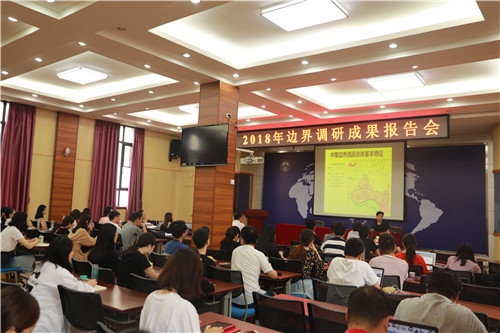
Jinyu, the representative of the Eco-governance Group, shared the information of the border investigation between the two places, collected the relevant information by visiting and discussing. On this basis, analyzed the current situation of the ecological development and the challenges faced by the ecological construction in the two places , and the corresponding suggestions and countermeasures were put forward according to the different conditions of the two places.
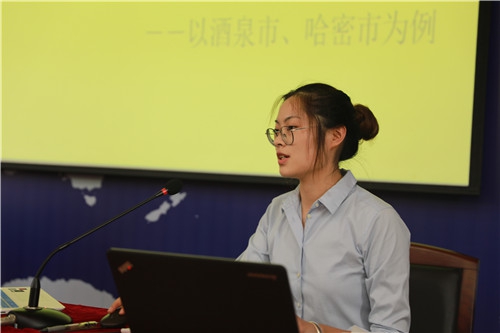
(Jinyu)
Xiong Shiyao, a representative of the Ethnic Religious Group, investigated and studied the ethnic and religious situation in the two places. He combed the concept of "Muslim" and analyzed the achievements of "Pan-Muslim" governance in Northwest China according to the situation of the two places. For the related problems, he proposed that unified standards should be formulated, the successful experience of Xinjiang should be used for reference, and related problems should be dealt with from the aspect of ideological education.
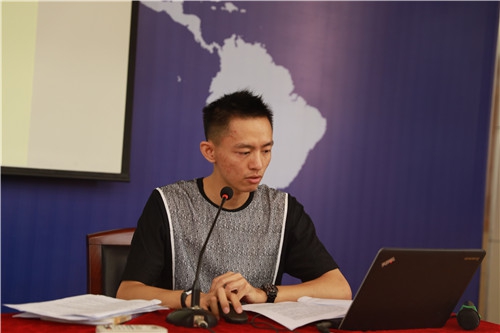
(Xiong Shiyao)
Xu Zihao, the representative of the Border Security Group, introduced the basic characteristics of the border between China and Mongolia from the aspects of geographical environment, the current border relations and the diplomatic strategy. He also introduced detailly the border security measures adopted by the two sides in border coordination mechanism, legislative work, facilities management, communication and cooperation.
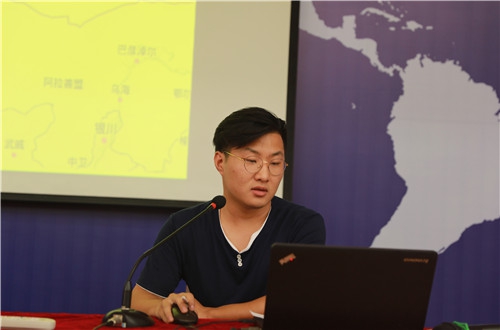
(Xu Zihao)
Wei Xiaoyu, the representative of the border management group, combed the border management issues such as boundary survey, demarcation, boundary maintenance and ecological environment protection in border areas, and put forward the relevant suggestions and countermeasures from the aspects of border personnel flow, border legal system construction, and the problems existing in the functional integration of border departments.
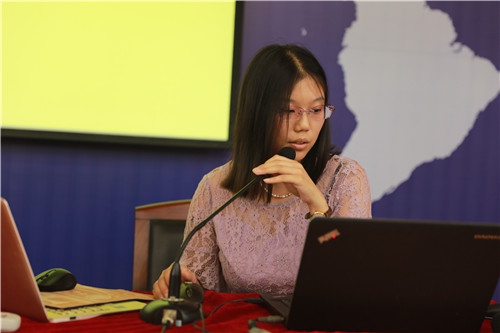
(Wei Xiaoyu)
Chen Shu from the Economic and Trade Group, taking the trade structure between China and Mongolia, the foreign trade situation of Gansu Province, the process of customs clearance at Mazongshan Port and the development of Laoyemiao Port as the entry points, analyzed the existing environment, policy and industrial structure of the two ports. He proposed that Mazongshan Port should strengthen exchanges, improve infrastructure construction and play the role of large enterprises, while Laoyemiao Port should strengthen high-level exchanges, make use of the advantages of electricity and Mongolian resources to complement each other, and play the role of friendly exchanges of tourism.
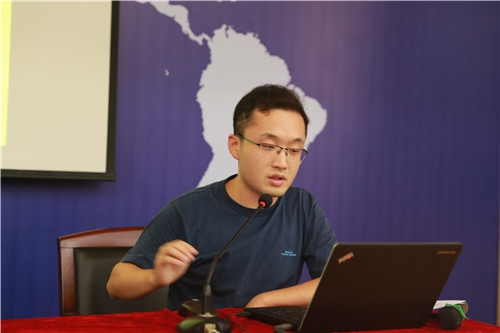
(Chen Shu)
Fan Ruixue, the representative of the infrastructure group, gave a detailed explanation of the basic transport facilities in Hami and Jiuquan. She pointed out that the differences in the development of transport infrastructure and the uneven allocation of transport funds on both sides of Mazongshan Port are important problems hindering the development of the port interconnection. She also put forward some suggestions on assisting Mongolia to carry out port infrastructure construction and ensure the normal allocation of funds. For Laoyemiao Port, she believes that it is an important junction point of the Silk Road and has important strategic significance. However, there are some problems such as fragile ecology and insufficient funds for construction.
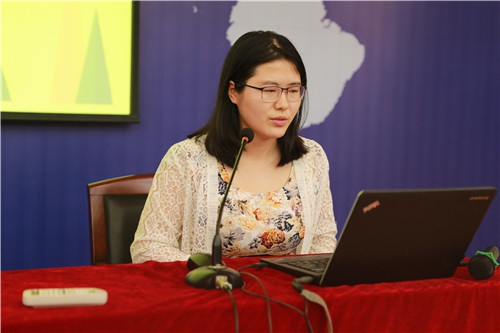
(Fan Ruixue)
(Rewritten by Chen Panpan)
(Edited by Fu Shanshan)
